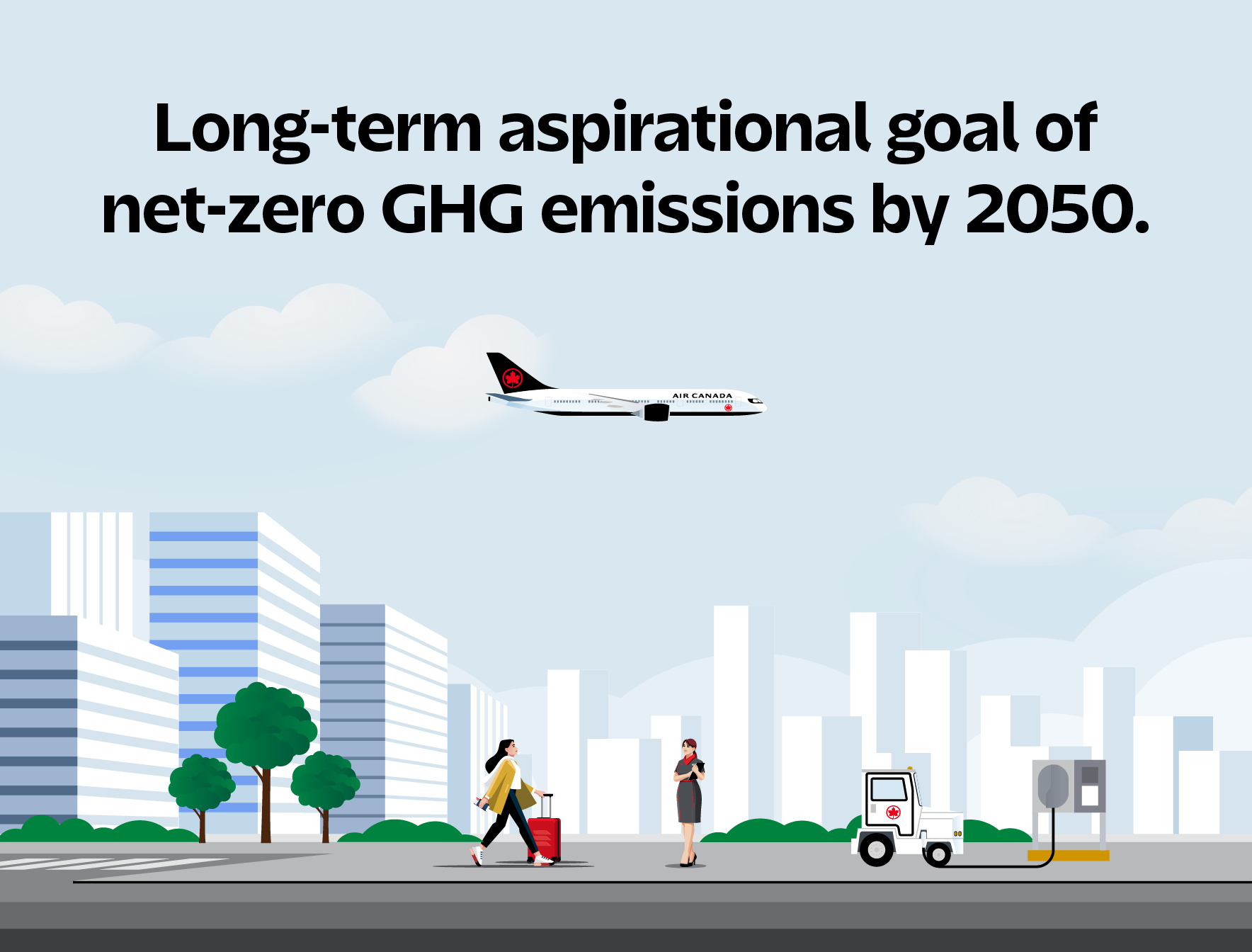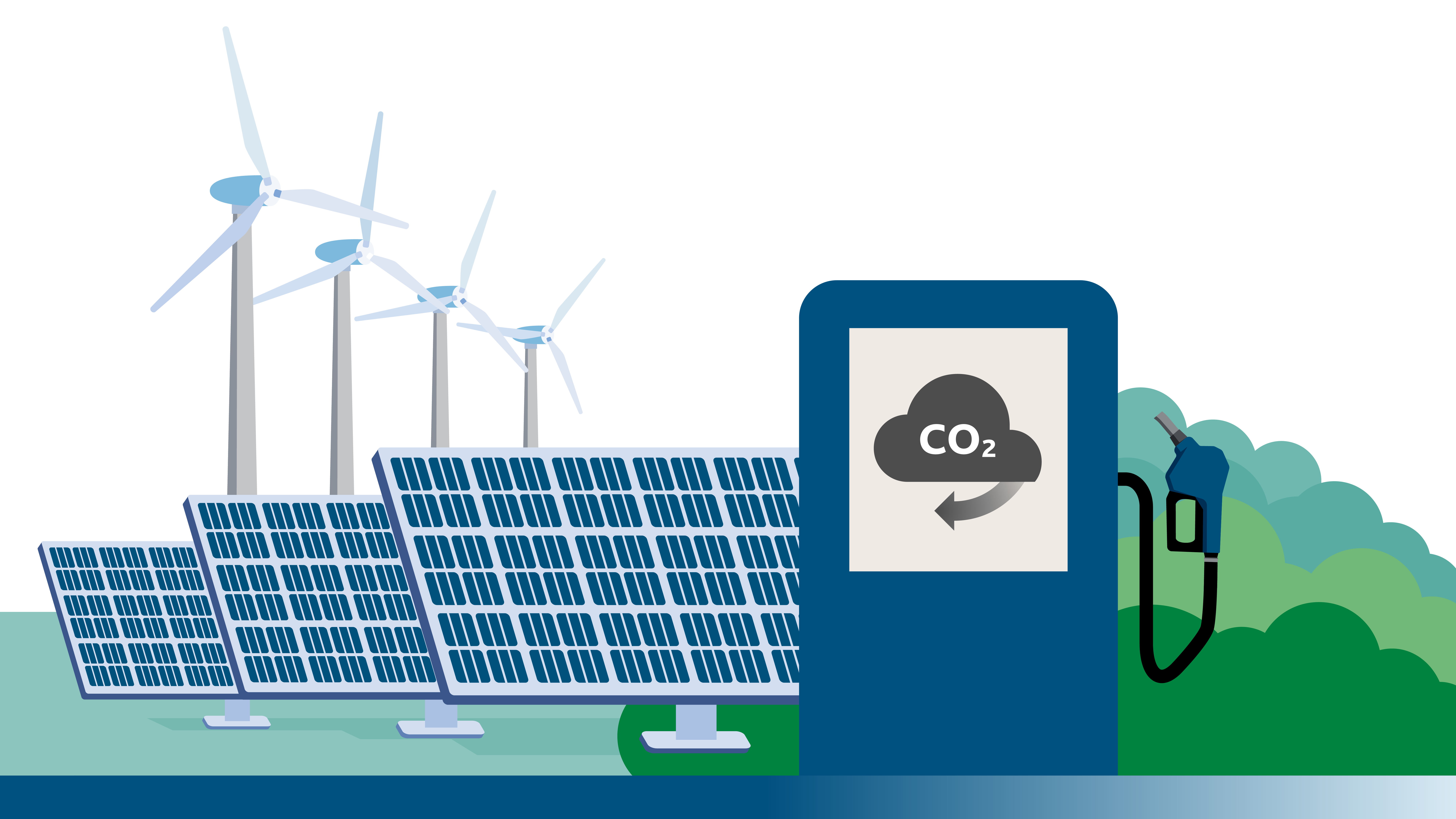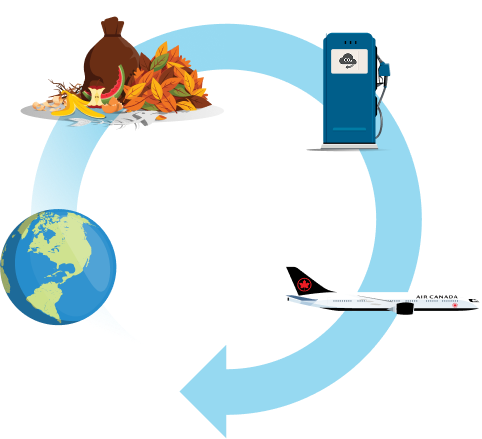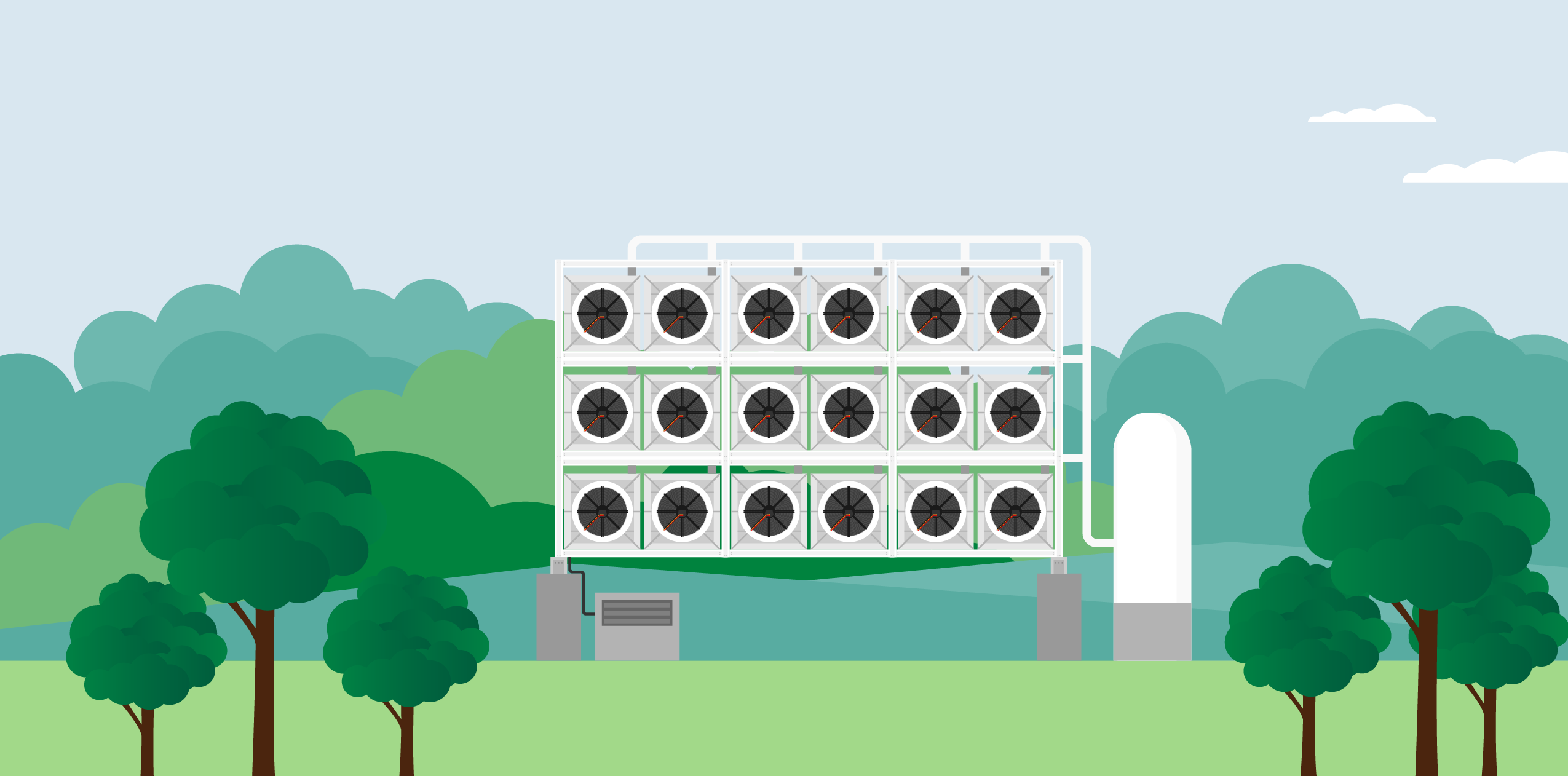Less carbon and energy

Our climate ambition
Air Canada’s climate ambition includes a long-term aspirational goal of net-zero greenhouse (GHG) emissions from all its global operations by 2050, as well as absolute midterm GHG net reduction targets by 2030 for both its air and ground operations, compared to its 2019 baseline. As we pursue this aspiration, Air Canada is focused on both short- to mid-term actionable targets through a series of five-year period implementation plans, the first such plan being effective from 2021 to 2025.
For additional information relating to Air Canada’s climate action initiatives, please see Air Canada's TCFD* disclosure as well as additional information relating to our climate goals.
*Task Force on Climate-Related Financial Disclosures
from air operations compared to 2019 baseline by 2030
from air operations compared to 2019 baseline by 2030
from ground operations compared to 2019 baseline by 2030
for new technologies, such as sustainable aviation fuels (SAF), as well as new aircraft and carbon reductions and removals.
Air Canada’s climate ambition builds on its existing value streams and activities and is based on four key carbon reduction pillars: fleet and operations, innovation, sustainable aviation fuels and renewable energy, and carbon reductions and removals.
Fleet and operations
With our fleet renewal program, we will continue our efforts to deploying more modern and fuel-efficient aircraft. We will continue to take into consideration and integrate climate factors into route and fleet planning and are working towards improving fuel efficiency.
On the ground, we expect to continue working towards phasing out carbon-intensive ground equipment and plan on further advancing electric vehicle use and seeking other electrification opportunities.

Innovation
As technology continues to emerge over time, we will evaluate the viability, safety and performance of new electric, hydrogen or hybrid propulsion technologies and will look for other innovative opportunities elsewhere in our operations.


Sustainable aviation fuel and renewable energy
To further our work on mitigating our greenhouse gas (GHG) emissions, we are investing in sustainable aviation fuel (SAF) and other low-carbon aviation fuel
On the ground, we are actively evaluating the practical applications of renewable energy sources, such as biogas and renewable electricity and energy transition measures.
Air Canada firmly believes that a concrete action plan is required in Canada to establish a competitive investment climate and to capture the economic added value of Canadian produced SAF.
Fueling aviation with renewable energy
As part of our strategy to work towards our long-term ambition of net-zero GHG emissions by 2050, supporting the use of SAF is one of our priorities. Explore the potential of SAF, made from non-fossil sources such as used cooking oil and agricultural residues, to help reduce aviation’s environmental footprint.
The lifecycle of SAF
- Collection and conversion
- Blending
- Delivery
Collection and conversion of renewable feedstock (i.e. used cooking oil, agricultural waste, algae.) is collected and refined into SAF.
SAF is mixed with conventional jet fuel to create a blended product by a producer.
The blended fuel is transported to an airport’s fuelling facility (without modification) to existing infrastructure or aircraft.

Watch the video to learn about the important impacts of SAF, from lowering greenhouse gas emissions to contributing to the reduction of air pollution.
For more information on our sources, please see our references section.

Carbon reductions and removals
We are exploring carbon negative emission technologies and other direct emission reduction and removal strategies. We are also further developing our regulatory carbon offset compliance programs and customer offerings.








 TCFD
TCFD IEnvA Certification
IEnvA Certification  Environmental Policy
Environmental Policy More information
More information Contact us
Contact us 






 Indicates an external site which may not meet accessibility guidelines.
Indicates an external site which may not meet accessibility guidelines.